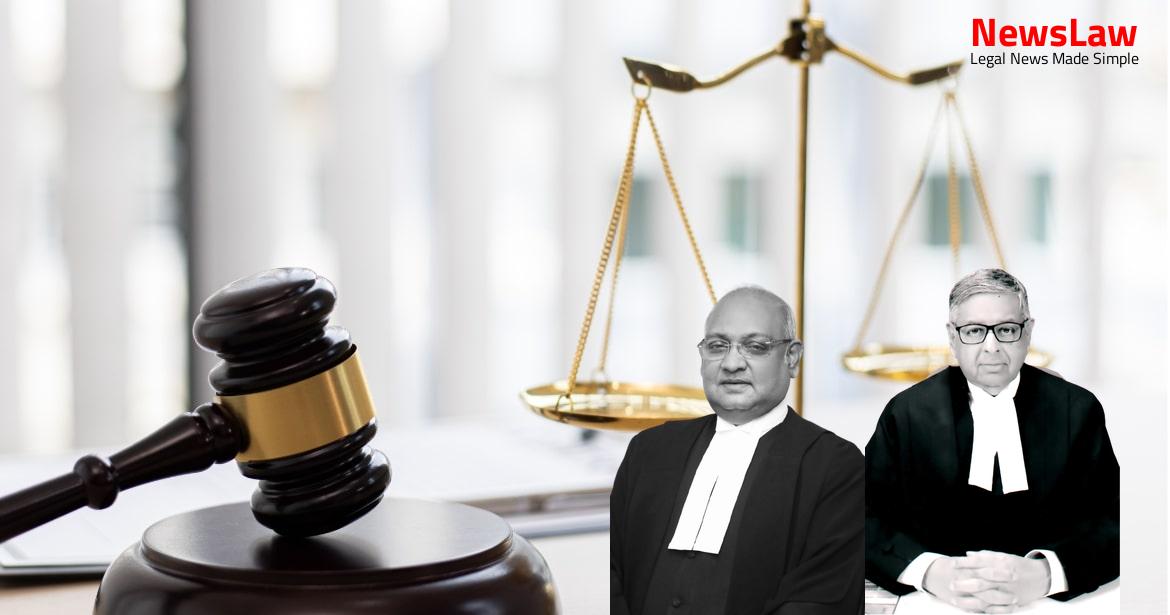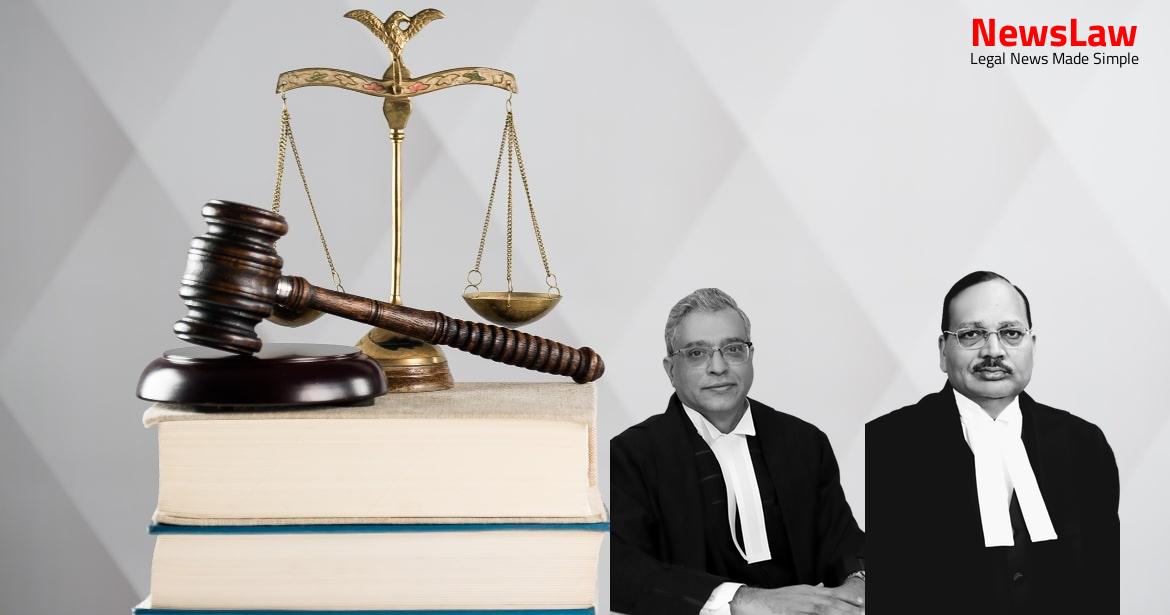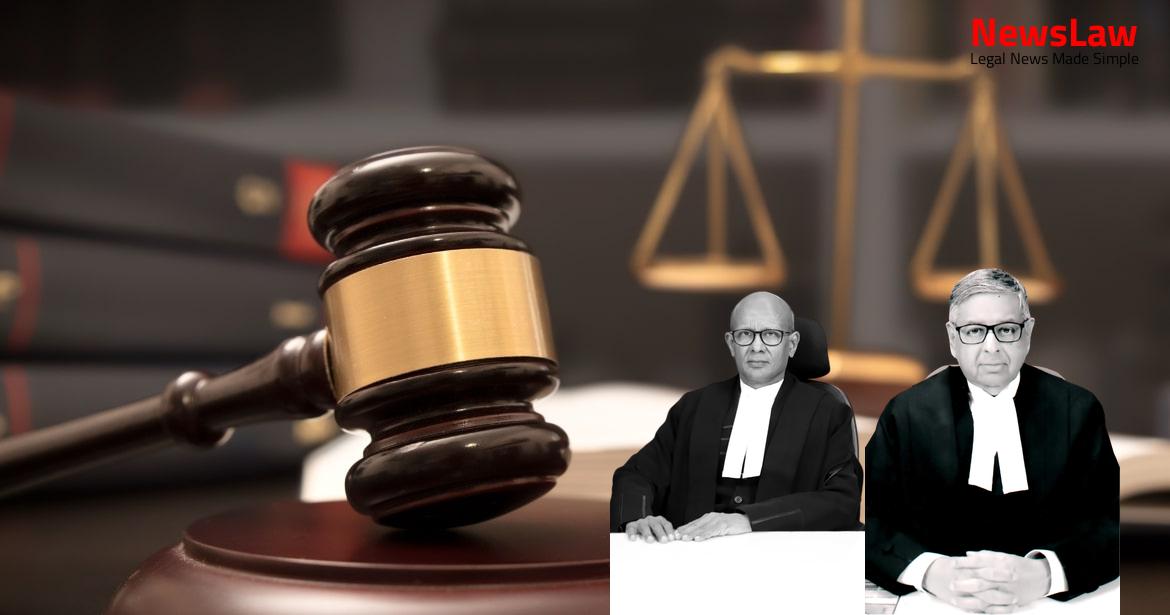Delve into the nuanced legal analysis made by the court regarding the substitution of a legal heir in a recent case. The court’s evaluation of testamentary and non-testamentary succession, as well as the application of procedural rules, sheds light on the complexities of inheritance law. Stay tuned for insights into the court’s decision-making process.
Facts
- The defendant-respondent argued that the appellant was not the sole legal heir of the deceased plaintiff as she had another son and a daughter.
- The Trial Judge found evidence of the existence of other legal heirs from the Will itself.
- The judge did not consider the execution and attestation of the Will as relevant at this stage.
- Due to the existence of other legal heirs, the Trial Judge dismissed the appellant’s application for substitution as the legal representative of the deceased plaintiff.
- The plaintiff, who was the mother of the appellant, passed away on 10.01.2020.
- The High Court received a revision petition from the appellant against the Trial Judge’s order.
- The suit was being pursued by the appellant as the power of attorney holder of the plaintiff, his mother.
- The appellant sought to be substituted as the legal representative of the deceased plaintiff through an application (I.A. No 1 of 2020), claiming that his mother had made a Will in his favor on 13.06.2016, registered at the Sub-Registrar Office, Perambalur.
- The High Court dismissed the revision petition.
- The petitioner needed to involve the other legal heirs of the late plaintiff in the case.
- The petitioner should have either included them as co-plaintiffs or defendants in the matter.
- This involvement was necessary for the enforcement of the petitioner’s rights over the property in question.
Also Read: Ensuring Maintenance Rights: Court’s Legal Analysis
Arguments
- The appellant has questioned the order rejecting the prayer for his substitution as the legal representative of the deceased plaintiff.
- The appellant argues that the Trial Court and High Court were not justified in their decision.
- The learned counsel for the respondent has supported the impugned orders.
- The Court, after examining the matter, is unable to approve the orders impugned.
Also Read: Analyzing Evidentiary Value in Criminal Conviction Case
Analysis
- The appellant is entitled to succeed to the deceased plaintiff through either testamentary or non-testamentary succession.
- The appellant, being the son of the deceased plaintiff, is the legal heir of the deceased.
- The Trial Court should not have declined the appellant’s application to substitute himself as the legal representative of the deceased plaintiff.
- The Trial Court could have made inquiries as per Rule 5 of Order XXII of the Code of Civil Procedure, 1908
- The appellant’s application should not have been dismissed entirely
Also Read: Legal Authority and Res Judicata in Representation Matter
Decision
- Orders impugned are set aside
- Application is restored for re-consideration by the Trial Court
- Reconsideration must be done in accordance with law
- Appeal is allowed
Case Title: R. KRSNA MURTII Vs. R. R. JAGADESAN (2022 INSC 741)
Case Number: C.A. No.-004832-004832 / 2022



